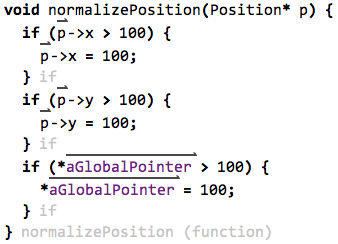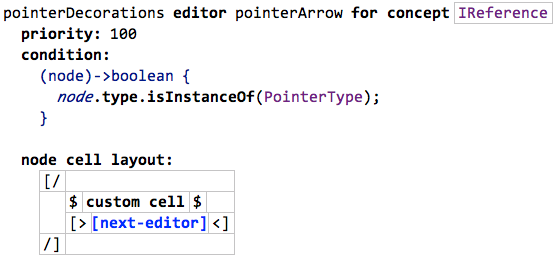Conditional Editors - AO for editor definitions in MPS
In MPS, each language concept has its own editor. While this is useful in 99% of all cases, sometimes it is a problem: imagine you want to change the editor of many different language concepts at a time. Then you have to change the editor for all these language concepts. This is tedious and error prone.
As an example, consider projecting a little arrow over all "things with names" in C that are pointers as a means of highlighting pointers throughout the program. This is shown in the example below.

The problem here is that there are separate language concepts for local variable references, global variable references, argument references, etc. All these have to be changed.
Enter conditional editors. A conditional editor is almost like an aspect. It can be applied "around" existing editor, and whether it applies or not is determined by a condition and the applicable concept (similar to a pointcut in AO). The figure below shows the definition of the pointer arrow editor.

It applies to all language concepts that are references and hence implement the IReference interface. It is conditionally applied only if the type of the reference is a pointer. As the editor itself, it shows the arrow (hiding behind the custom cell on top of the already existing editor ([next-editor]).
Using this approach, it is now possible to essentially decorate any editor with any decoration based on arbitrary conditions. The plugin that enables this behavior can be found at github: https://github.com/slisson/mps-conditional-editor, and it is also part of the mbeddr platform.